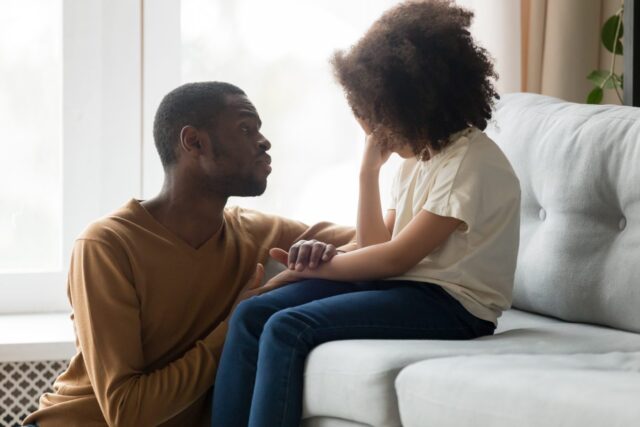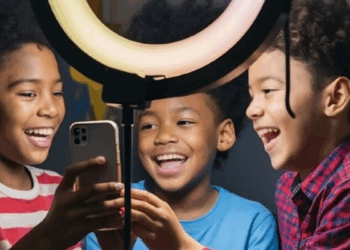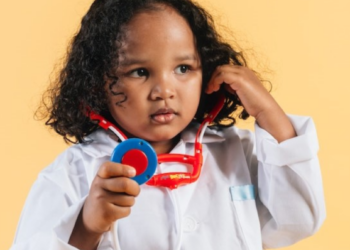We are not even out of the first month of a new year and within the past several days, the United States has had five mass shootings in California, Iowa, and Washington, leaving 24 beloved individuals dead. With the continued wake of gun violence at what seems like every turn, many parents are finding it harder and harder to have another kind of talk with their kids. According to the experts, here are a few tips on how to continue the gun violence conversation with children.

“Only in America do we see this kind of carnage, this kind of chaos, this kind of disruption of communities and lives and confidence and sense of safety and belonging,” California Gov. Gavin Newsom said in a press conference after his state suffered three mass shootings in about a 44 hour span.
As a parent, safety and belonging are top priority to ensure a child’s mental and emotional well-being. Here is how parents can accomplish just that.
1. Assure your child, at any age, that you are doing the best that you personally can to keep them safe.
“Reassuring our children in these turbulent and violent times is a paramount question for parenting,” said John Mayer, Ph.D., a clinical psychologist at Doctor On Demand in an interview with Parents.com. “Say to your children: ‘We will never take you anywhere or put you in any place where there is danger. That is our primary job as parents, to protect you. We will always keep you safe.’ That fundamental message of safety is critical to make sure your children hear.”
Although parents do know that nothing is one hundred percent guaranteed, and that includes safety, reassuring children that you will do your personal best to make sure that they stay safe.
2. Turn off the TV and social media
During these mass shooting events, the news coverage is everywhere. It may be a lot for children of all ages to absorb. (Sometimes, this includes parents too!) Turn off the TV and social media and talk to each other. You do the talking and explain the facts. Don’t let anyone else do that for you.
“You don’t have to be a rocket scientist to understand the more repeated and prolonged exposure to TV and media images the more anxiety this creates,” said Eirene Heidelberger, a parenting expert and founder of GIT Mom (Get It Together, Mom!). “Your child’s awareness is growing and it’s imperative that you explain the basic facts about what happened; not TV or social media. Don’t go into gory detail, but don’t pretend your child isn’t aware that something’s amiss in the world.”

3. Grieve with your children.
These mass shooting situations are heart-breaking. If your child wants to grieve and shed tears for the fallen, let them. Be empathetic to their feelings and grieve with them. Empathy is a healthy emotion for both adults and children to have. Give them the space to open up and share what they are feeling, allowing everyone’s emotions to be legitimized.
4. Make sure that you talk gun safety with your children.
According to Everytown for Gun Safety, every year, more than 3,000 children and teenagers between the ages of 0 to 19, in the U.S. die each year due to guns, while 15,000 are injured. Of those statistics, 1,881 are homicides, 1,176 are suicides, and 115 are accidental shootings.
“Parents who own guns have a responsibility to teach gun safety, ownership, and the appropriate utility of guns to their children,” said Dr. Mayer. “A gun shouldn’t just exist in the household and parents assume that children will be OK with it being there and/or know all they should about that weapon. Be a teacher!”

5. Reintroduce joy.
These situations are incredibly sad. Walk your child through the grieving process, help them to make some sense out of these tragedies the best way that you can. Then, reintroduce joy into their world. Point out the good things in their lives, in the world, etc. Bring smiles to their faces and let them know that no matter what, they have a parent who loves them.







